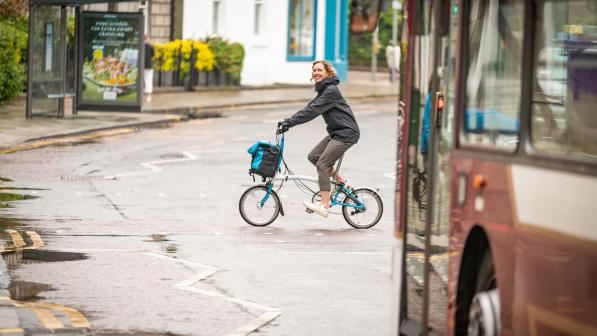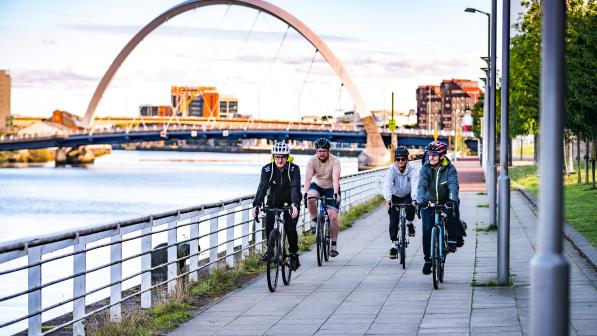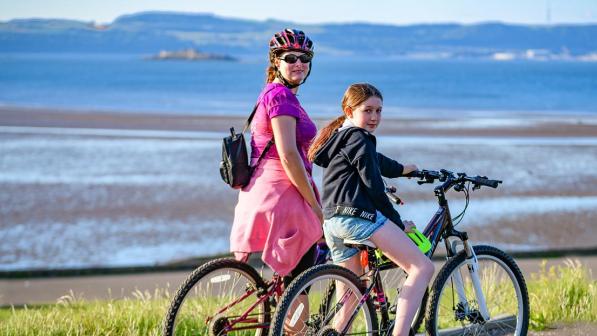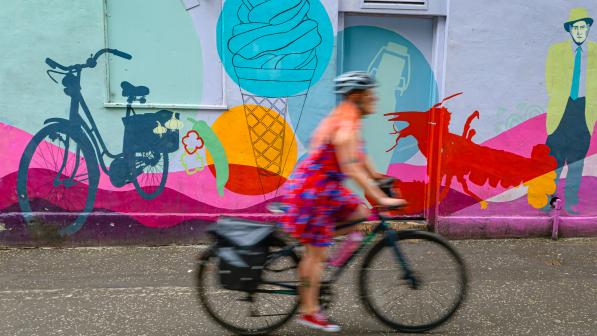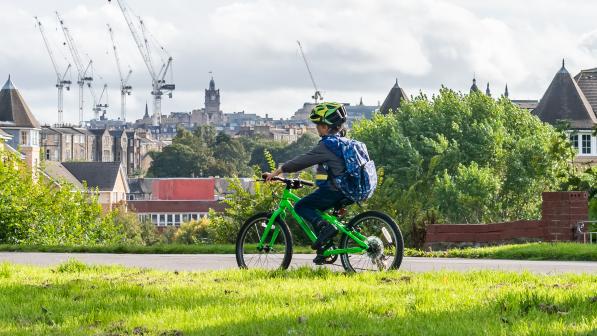UK’s first active travel minister appointed by Scottish Government

During a momentous few days for Scottish politics, the power sharing agreement between the Scottish National Party (SNP) and Scottish Green Party was ratified by the Greens' membership with an overwhelming majority.
A few days later the co-leaders of the Scottish Green Part, Patrick Harvie and Lorna Slater were appointed as ministers within the Scottish Government.
This is the first time that Greens have been in national government anywhere in the UK, and comes after the SNP sought a more formal arrangement with the Scottish Green Party, and secure a stable Scottish Government during the new parliament.
When rubber stamped by the Scottish Parliament, Patrick Harvie will be minister for zero carbon buildings, active travel and tenants’ rights, whilst Lorna Slater takes responsibility as minister for green skills, circular economy and biodiversity.
Patrick Harvie has been an MSP for Glasgow since 2008 and is a keen cyclist.
His appointment as Scotland’s first ever active travel minister indicates an increased priority towards cycling, walking and wheeling in Scotland.
We hope this new post will drive forward a sector with newly increased funding and impetus.
The power sharing deal includes a huge increase in active travel funding plus a number of other significant commitments, many of which were similar to what we called for in our Scottish election Manifesto for Cycling.
Our analysis of the deal showed the following highlight policies:
- Spending 10% of the transport budget on active travel by 2024/25 – up from the current 3.5% level.
- Greater commitment to establish an active freeway network for Scotland.
- More Safe to School initiatives, so that children can cycle to school safely.
- 20mph speed limits on all appropriate roads in built up areas.
- An online reporting system one-year pilot enabling anyone to upload camera footage of dangerous driving – following a campaign led by Cycling UK.
- Space on new buses to carry bikes.
Patrick Harvie now has the task of implementing this broader and deeper set of government policies, but what other cycling and active travel issues are on the new minister’s desk as he begins his new role?
- Programme for Government – He must ensure that the Programme for Government on 7th September includes bold new active travel polices.
- Budget - The draft budget for 2022/23, due later in the year, must boost active travel spending to at least £185m to be on course to spend £320m in 2024/25. Current spending is £115m.
- Relationships – The minister must develop good working relationships with transport minister Graeme Dey and cabinet secretary Michael Matheson. They need to work together to create joined up policies on active travel and transport, especially on issues such as road safety and road traffic reduction.
- Culture change at a local level – As the new minister, Mr Harvie must find a way to bring councils and councillors with him on the journey of creating a network of cycling infrastructure and attractive neighbourhoods. Throwing more money at the problem won’t work if councillors are unwilling to use their powers to reduce the dominance of private car use on our roads. In addition, councils, especially the smaller ones, must be supported to make the internal changes needed to be able to deliver successful projects.
- Delivering change – In the past the Scottish Government has been criticised for creating frameworks and strategies but not delivering sufficient change. There must be a new effort in government to be bold, deliver change and show how good and beneficial active travel infrastructure can be.
Just a day after Mr Harvie’s appointment, Greta Thunberg issued a reality check to the SNP and Greens on climate action in Scotland.
Interviewed ahead of the COP26 climate summit to be hosted in Glasgow, she said that she does not regard Scotland as a world leader on climate change.
Furthermore, she said "there are no countries, at least in the global north, that are doing even close to what would be needed".
In recent years the Scottish Government has made much of its climate targets and been keen to describe them as ‘world leading’.
However, for the past three years, Scotland has missed its annual targets for cutting emissions year on year and this threatens to derail the next milestone target in 2030.
We hope that a minister responsible for active travel can help to boost the emphasis on reducing emissions from transport and help get Scotland back on track to meet the targets.
A government and a new active travel minister taking forward a progressive agenda over the coming months will be exciting.
We wish Patrick Harvie well in his new role and offer any support we can provide.
It is now within Scotland’s grasp to make cycling and active travel a real alternative for many more people, especially for everyday journeys.
